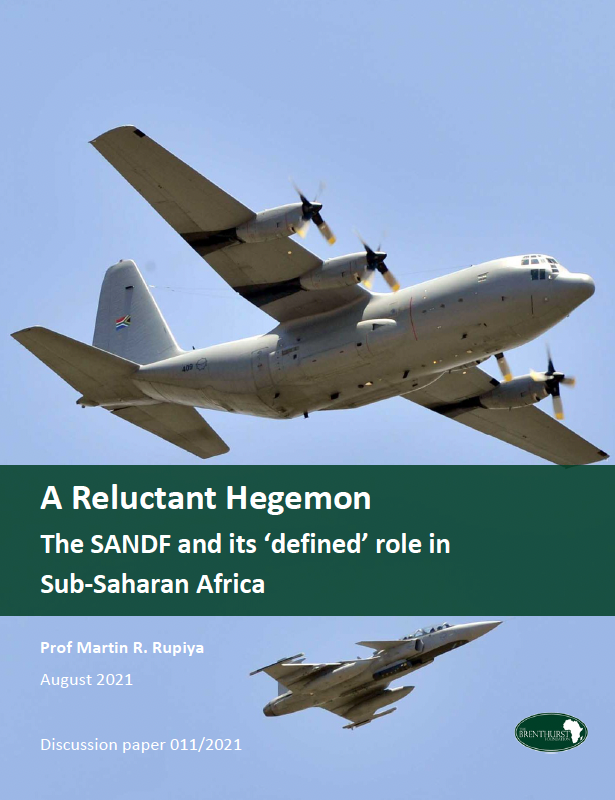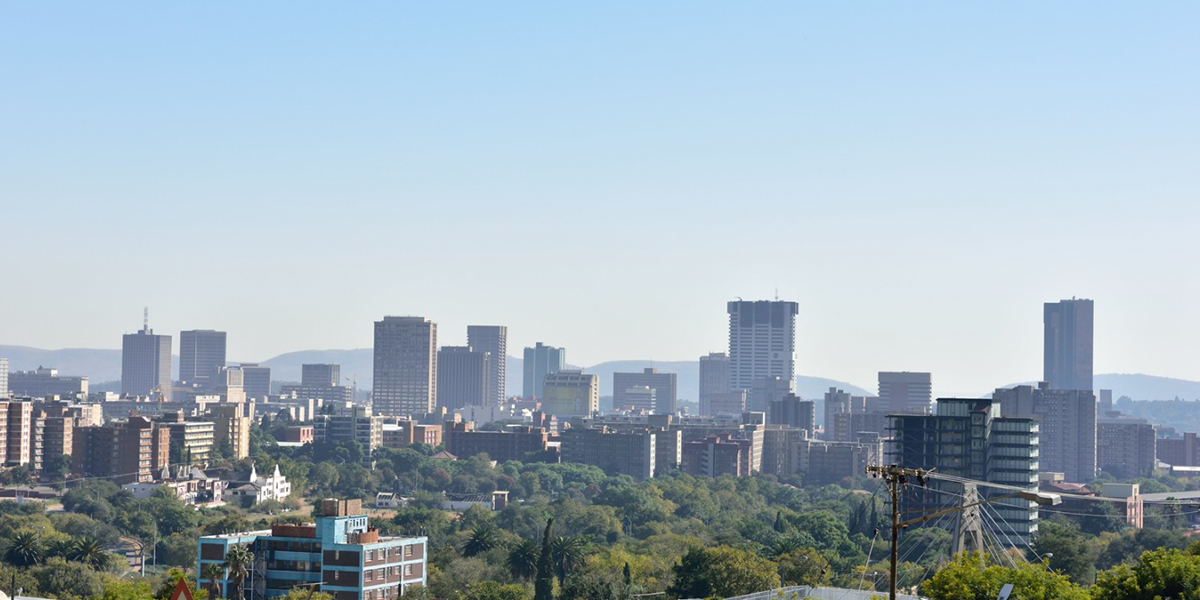Publications
A Reluctant Hegemon: The SANDF and its 'defined' role in sub-Saharan Africa
At the end of May 2021, South African President, Cyril Ramaphosa, announced sweeping changes to the new military command of the South African National Defence Force (SANDF), following the retirement of the long serving General Solly Zacharia Shoke. General Shoke was replaced by Lieutenant General Rudzani Maphwanya, who was promoted to General a month later, accompanied by new appointments heading the other branches of the force. In the President's view, the new appointments represented an opportunity to undertake, “substantial change” in which he expected a “seamless and smooth” transition. The implications of the President's call were to urge the generals to develop and implement appropriate policy and organizational reforms, within the security sector, that would benefit the overall continuing attention towards the state formation of the country. Conceptually, the transformation in the security sector, envisaged by Ramaphosa, was to address the complex and challenging state formation and institutional construction processes that include political, socio-economic and security dimensions of a relatively youthful post-apartheid democracy. The message was against the background of what has now been widely acknowledged as the major post-independence challenge facing African nations — establishing a viable and functional state. Instead, throughout the continent, the African state is in crisis. Characterized by dysfunctional states lacking legitimacy, with some becoming victim and totally captured by factions of ruling political parties, or even families, as we have witnessed in Togo and Gabon, who have remained in power for over 50 years.
But, in the case of the SANDF, precisely what are the role challenges envisaged in order to establish and integrate the armed forces into the nation's developmental agenda? Stated differently, General Maphwanya (promoted with effect 1 June 2021) and his new team must formulate, develop, and adopt appropriate policy options at the strategic and tactical operational levels that will satisfy the president's publicly stated expectations of 'ushering in substantial change' from what has been the practice in the past. Given the 'marching orders' to the new military command by the South African President, as well as taking into account the uninspiring continental experience, this discussion offers some considered views on how the SANDF may execute its mandate, through suggested strategic and structural approaches, to result in comprehensive security sector reform and alignment to national interests. The SANDF's Military Command (MC) comprises an innovative delegation of sectoral responsibility, under the Chief of Defence Staff (CDS). This includes heads of the Army, Air Force, Navy, Military Health Services, the Chief Joint Operations, Head of Defence Intelligence, Logistics, Human Resources and the forces' Chief of Staff.
Furthermore, in making this statement, the president implies that the institution has to consider almost fundamental reforms to move it away from past experience. Significantly, the president is making these comments against the background of widespread negative comments about the role and participation of elements of the security sector emerging from the State Capture inquiry, chaired by Deputy Chief Justice Raymond Zondo, as well as findings of commissioned reports, such as the High Level Review Panel Report on the State Security Agency,established during December 2018 and chaired by former Minister Sydney Mufamadi. To this end, The High Level Review Panel reveals the successful establishment of personalized and factionalized units within the State Security Agency and Secret Services with different reporting lines outside the constitutional provisions. Against this background, the motivation and need for comprehensive security sector reform for South Africa has never been more urgent. The challenge, therefore, remains for General Maphwanya to come up with appropriate corrective measures, designed to reset the national roles and functions of the SANDF, to occur within the existing budgetary constraints. On this note, while General Maphwanya is coming into office facing a R15 billion budget cut, available evidence also indicates almost consistent deficit funding on defence and security over the last three years, according to the parliamentary monitoring group. It is to his credit that Maphwanya has already raised concerns on “the diminishing allocation of resources with a deleterious impact on the Defence Industries such as Armscor and Denel with important downstream and upstream economic linkages under threat.”
On the question of the new role definition, a respected colleague and security analyst on the SANDF, Jakkie Cilliers, firmly asserting the point that urgent attention needs to be paid towards the reform of the SANDF, argues that the institution “be repurposed for African peace support operations, border protection and support to police. (Note: cited in “SA Intelligence Agencies not up to scratch: Time for Change,” 22 July 2021, DefWeb)
However, this discussion suggests at least five priority areas, around which balance must be mediated, for the security sector to begin to align itself to appropriate roles.




